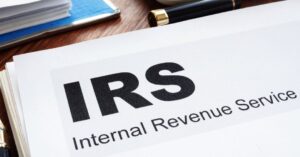A letter arrives for you with the IRS seal on it – your heart sinks. What could it be?
Once you open it, the top right column continues to read that for a particular tax year the IRS is sending you: Letter 5699. The letter continues to read that you may be an Applicable Large Employer (“ALE”) and you may have been required to file information tax returns (Form 1094-C or Form 1095-C) for that year.
What is Letter 5699?
The initial Letter 5699 is an exploratory inquiry that the IRS sends to gather more information relating to informational tax returns required for the Affordable Care Act. It is triggered by the IRS comparing the employer’s W-2 count for a given calendar year to the information that should be reported on the employer’s 1094-C.
If the W-2 count is high enough for the IRS to believe that the employer is an ALE, and there is no record that the IRS received a Form 1094-C or Form 1095-Cs for an ALE, the IRS will send this letter to gather additional information about the calendar year in question. The letter includes the following options and responses to their initial inquiry:
- If you believe that you filed the required forms, confirm the employer name, employer identification number (“EIN”), and date of filing for the calendar year in question (if you have it, be sure to include your IRS ReceiptID for the transmission);
- Confirming that the employer did not initially file the returns; but Employer has included the required forms with the response to (if the employer has fewer than 250 FTEs – for filing years prior to 2023);
- Confirming that the employer did not initially file the returns; but Employer will electronically file the required forms by a certain date (it is recommended to file within 90 days);
- Providing an explanation to the IRS why the employer is NOT an ALE and thus why there was no reporting requirement for the Form 1094-C or Form 1095-Cs; or
- Other information and/or explanation to the IRS.
5 Steps to Take
For employers that receive a Letter 5699, take these action steps:
- DO NOT throw the letter out – take it seriously and ensure that you respond to the letter within a reasonable amount of time (recommended within 60 days);
- If you need additional time, it is OK to ask the IRS for more time to perform your own internal review of the facts and circumstances giving rise to the letter;
- Once you’ve performed your own internal review, respond to the letter and ensure that you have selected the right option above (including filing your returns, if needed);
- Take initiative and continue to communicate with the IRS to encourage them to refrain from issuing penalties relating to the late filing – if certain criteria exist, the IRS may remove some or all penalties associated with late Form 1094-C and Form 1095-C filings; and
- When in doubt, consider hiring an expert, like Paragon Compliance, with a specific expertise filing Form 1094-C and Form 1095-Cs, as well as acting as a power of attorney to resolve these non-filing issues on behalf of clients.
If you take the steps above and communicate proactively with the IRS, you may avoid the following other communications with the IRS, which the Letter 5699 precedes, that may include the following:
- Letter 5698 – Information Return Inquiry Follow Up (sent after the Letter 5699);
- Letter 2644C / 2645C – Extension of Time Request Letters
- Letter 5005-A – Information Return Penalty Letter
- CP215 – Notice of Penalty Charge (from Civil Penalties division)
Taking more proactive action also will keep the communications confined to the Affordable Care Act team (in Ogden, UT), this group is referred to as the “4980H Response Unit”, which is a helpful and knowledgeable group.
If the employer allows an issue to linger without resolution, the IRS Civil Penalties unit may get involved, which can may delay the resolution of the case. Once you receive a notice that includes “CP” in it, this is an indication that the IRS Civil Penalties division is involved, and has applied a civil penalty.
However, with the information above, prompt action, and relying upon an expert like Paragon Compliance, keep the IRS at bay with a timely and accurate response to the Letter 5699 the first time, so the issue does not compound on itself by turning into a civil penalty.


